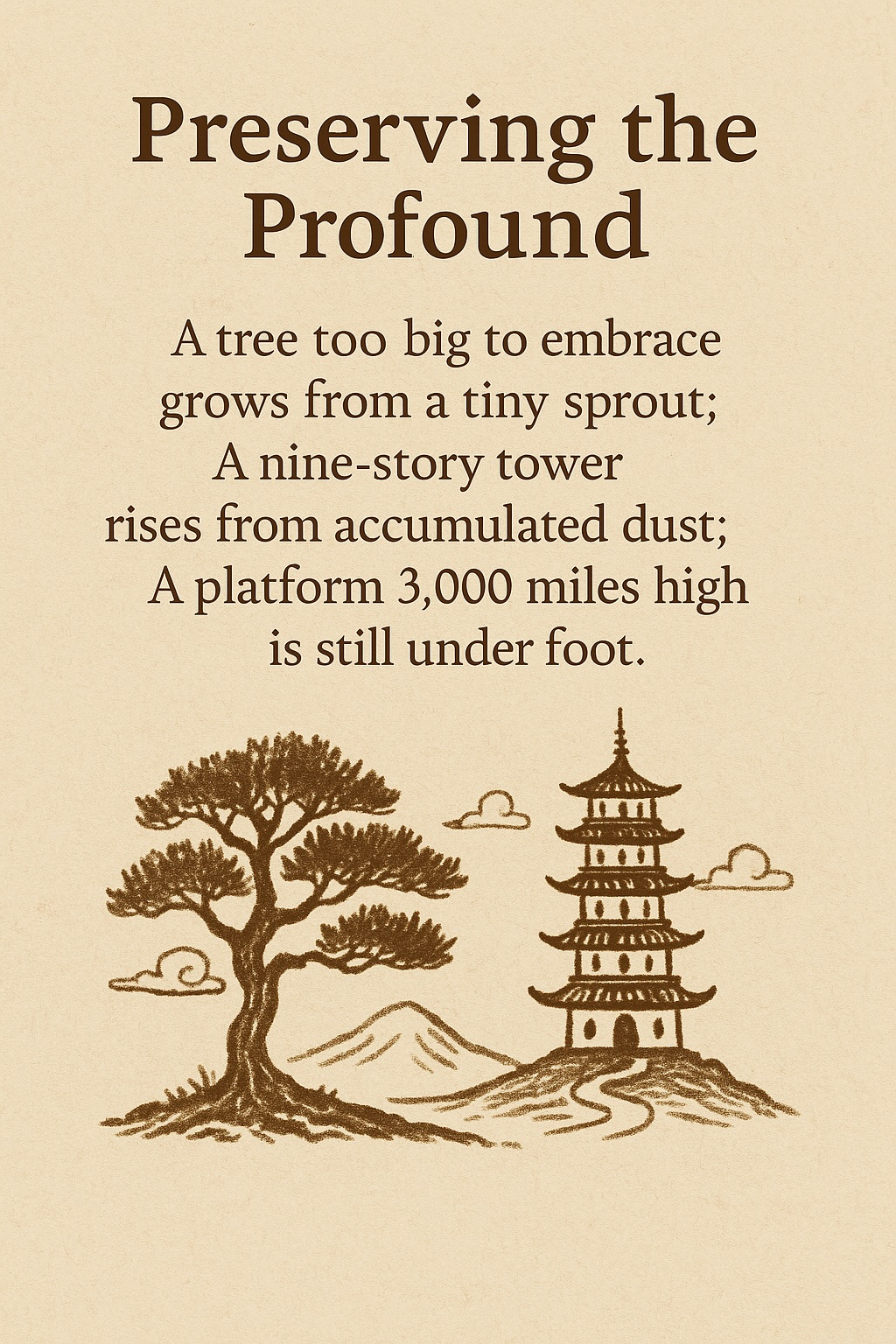Introduction
This verse speaks to the logic of timing, the nature of process, and the illusion of control. Reconstructed from multiple early versions, it contains some of the clearest structural guidance in the Dao De Jing—but only if we discard inherited Confucian readings. Rather than promoting caution as a virtue or failure as a moral outcome, this verse reminds us that failure is a misunderstanding of process. By recognizing that beginnings and endings are inseparable, and that action emerges from stillness, we’re invited to re-encounter life as it is: dynamic, patterned, and emerging.
Translation
When things are stable
it’s easy to handle them.
Before there are omens,
planning is easy.
Something that is still fragile
is easy to break apart.
What is emerging
is easily scattered.
Action arises in
its (y)in-activity.
Order happens in
the absence of chaos.
A tree too big to embrace
grows from a tiny sprout;
A nine-story tower
rises from accumulated dust;
A platform 3,000 miles high
is still under foot.
Actors fail.
Graspers lose.
This is why the Wise
(Y)in-act—
and thus never fail.
Detach,
therefore have no loss.
The rule of taking care of things is,
Caution: ends are like beginnings.
Thus, failure does not exist.
The Wise
desire desirelessness,
not cherishing the unattainable.
Teach without teaching,
return to where the ordinary pass by.
This is why the Wise
can state the natural function of all things,
yet not act.
Commentary
When things are stable
it’s easy to handle them.
Makes sense.
Before there are omens,
planning is easy.
“Before there are omens” refers to the ancient divinatory practice of heating bones and reading the fractures in them for insight into the future or outcomes of events. The idea is that without preconceived notions or complications, we are more effective in handling whatever arises.
Something that is still fragile
is easy to break apart.
What is emerging
is easily scattered.
These two statements are parallel in meaning, reminding us that the early stages of a new development require tender attention until the events can survive on their own. Equally valid is the recognition that breaking something unskillful up before it develops momentum is a good idea.
This is most directly applicable when considering how we expend energy in “tending our mind garden.”
“Tending the mind garden” can be understood as:
nurturing that which we want to thrive,
planting that which we want to grow,
pulling that which doesn’t belong,
and refusing to plant what we don’t wish to have.
Keep reading with a 7-day free trial
Subscribe to Dan’s Substack to keep reading this post and get 7 days of free access to the full post archives.


